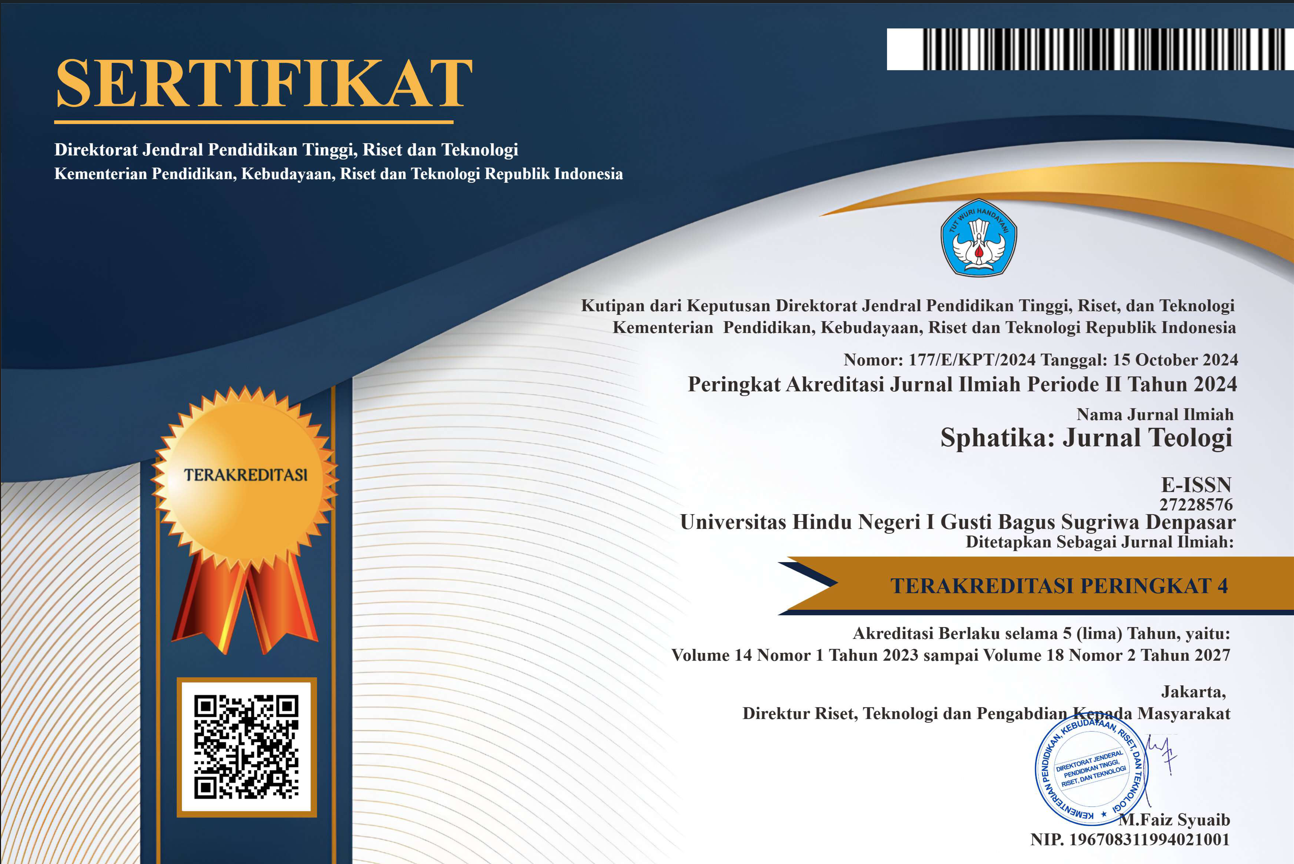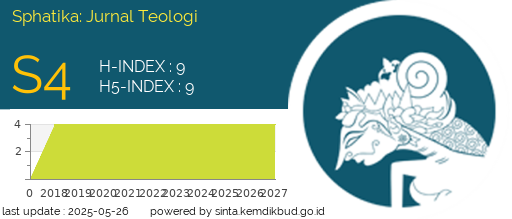Pemaknaan Diksa dalam Tahapan Menjadi Pandita pada Ajaran Agama Hindu
DOI:
https://doi.org/10.25078/sphatika.v12i2.1129Abstract
Being a holy person in the teachings of Hinduism is a noble task as a guide for the people. This is because being a holy person, especially a Hindu priest, goes through various stages that must be passed as a process of maturation (learning) and purification (diksa). In the maturation process, which is filled with learning the Vedas and religious knowledge, it is used as a foundation later when after becoming a priest in guiding and providing enlightenment to people who need service. While the purification process is an aspect of legality in the ritual dimension which is believed to be able to physically purify someone who enters the spiritual dimension.
References
Pudja MA. SH., Gede. 1999. Bhagawad Gita (Pancama Veda). Paramita : Surabaya.
Purwita, Drs. I.B. Putu. 1993. Upacara Mediksa. Upada Sastra : Denpasar.
Sara Sastra, M.si, Drs. Gede. 2005. Pedoman Calon Pandita dan Dharmaning Sulinggih (Wiku Sasana). Paramita : Surabaya.
Subagiasta, I Ketut. 2006. Tatwa Hindu Bagi Pandita dan Pemangku. Paramita : Surabaya.
Suhardana, Drs. K.M. 2007. Dasar-Dasar Kasulinggihan. Paramita : Surabaya.
Sujana, Drs.I Made. 2007. Manggala Upacara. Paramita : Surabaya.
Surpha, I Wayan. Keoutusan Seminar Kesatuan Tafsir Terhadap Aspek-aspek Agama Hindu I s/d XV, Pemda Tingkat I Bali, 1999/2000.
Wiana, I Ketut. Makna Upacara Yajna Dalam Agama Hindu II. Paramita : Surabaya.
















